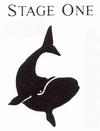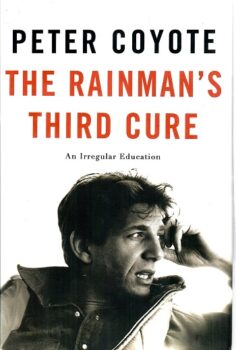The First Stage of Life
A Story
***
 The first stage of life, occupying the years from conception and birth to age seven, is the stage of the human individual’s vital-physical adaptation to the world into which he or she is born. In this first stage the being learns “simple” skills like focusing with the eyes, grasping and manipulating objects, walking, talking, assimilating and converting food and breath into energy, and controlling bladder and bowels.
The first stage of life, occupying the years from conception and birth to age seven, is the stage of the human individual’s vital-physical adaptation to the world into which he or she is born. In this first stage the being learns “simple” skills like focusing with the eyes, grasping and manipulating objects, walking, talking, assimilating and converting food and breath into energy, and controlling bladder and bowels.
Individuation
The first stage of life is the process of adapting to life as a separate individual, no longer bound to the mother. Most important for the first stage child is the process of eating and learning to accept sustenance from outside the mother’s body. In fact, this whole stage of life could be described as an ordeal of weaning, or individuation.
A Story from Peter Coyote

Jim’s lessons were never far from my mind, and even as I hunted, true to his instruction I sought out the runts, the wounded, the outliers, culling the weak as a predator would and by observing “the laws of nature,” helping the healthy and vigorous to transmit their genes forward, keeping the species strong.
During that same period in the Sixties, when a drive for spiritual insight and specific knowledge of place drove me to seek out Native American elders and teachers, I was not surprised to discover that their stories and perspectives reinforced Jim’s early lesson and understood my good fortune in having had such a mentor as a boy. In some manner, all the stories that follow are as concerned with my teachers as they are about the knowledge they bequeathed. Each became a part of my sense of self, and whatever I may be today that might be worth emulating is made of these men and women and of what I took away from them.
THE EASY TIMES with Morris (his father) disappeared when we returned to Englewood. Changes in me as I aged also exacerbated tensions between us. Experiences with Jim and Ellie Clancy had afforded me a safe perch outside my family and that perspective had been helpful in clarifying differences between life inside and outside my house. This period, between five and eight or so years old, was marked by the discovery that I was a distinct personality and definitely separate from my parents, but this knowledge also appeared to provoke and challenge my father in some way.
I remember a clarifying incident vividly. I was running on my front lawn one balmy summer evening after dinner, distracting myself about some situation that had disturbed me during the course of the day, but that I had been unable to articulate. As I whirled and twirled through the odors of fresh-cut grass and blossoming flowers and danced among the winking fireflies, I remember “seeing” the inexpressible dynamic as images in my mind’s eye and comforting myself by thinking, “Oh, my mind knows what I mean.” It is my earliest memory of a conscious “self,” an awareness of awareness co-existing with my physical body.
Knowledge of this separation prompted a fascinated curiosity and I began to move through the world with the sensation of being somehow split; one eye was looking out probing the generally accepted public reality and the other was gazing in, probing the mystery of my interior responses and feelings. It changed my behavior to a degree, making me spacey and distracted, preoccupied by the tension between the two. These changes appeared to affect Morris negatively. What had previously been a relationship of benign neglect, random displays of affection, toleration, advice, and occasional anger on his part, began at this time to feel more stressed and suffused with an underlying irritation; as if I were teetering dangerously away from his control, a situation he appeared to find threatening; as if I had discovered a secret refuge to which he was denied entrance.
Around this time too I also began to observe Morris’s intemperate behavior more clearly. He appeared to be throwing tantrums more often, enraged at telephone operators, at the fact that he could not find his glasses, at the dog, at my leaning back in one of his antique chairs. “That chair’s worth fifty thousand fucking dollars,” he’d snap, turning on me with physical menace. The causes of his perturbation changed from moment to moment and day to day, making life unpredictable and unnerving. And for the first time, daily life became increasingly confrontational, filled with inexplicable threats and danger. Perhaps it had always been this way, and I had simply become conscious of it.Morris possessed so many demonstrable skills, which were honored and recognized by the world; he exhibited such certainty and competence and could be so charming and dazzling, that as a boy I felt impossibly diminished beside him. I felt that I could never approach the scale of his accomplishments. Because of the respect he received from so many adults, I assumed the faults he often highlighted in me— “Watch what you’re doing!” “How can you be so fucking stupid?” “What’ve you got, shit-for-brains?”—were mine and I accepted his criticisms and disapproval as both descriptive and deserved. From this perspective, even his lack of daily attention seemed justified.
Learning to read Morris’s moods became critical to my survival, not to mention household stability and order. One had to understand when “Yelling from room to room,” talking on the telephone (when he wanted it), being depressed when he returned from work in a good mood, or being overly playful when he returned in a bad mood might…
more:
Read more on Adi Da’s Seven Stages of Life – The First Stage
